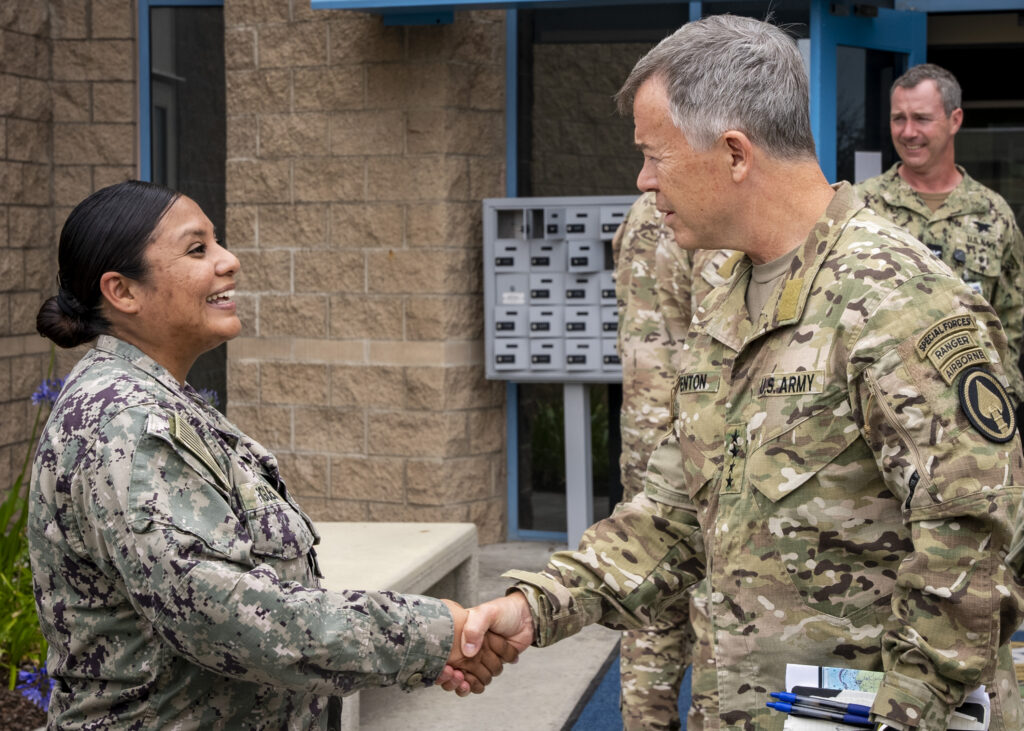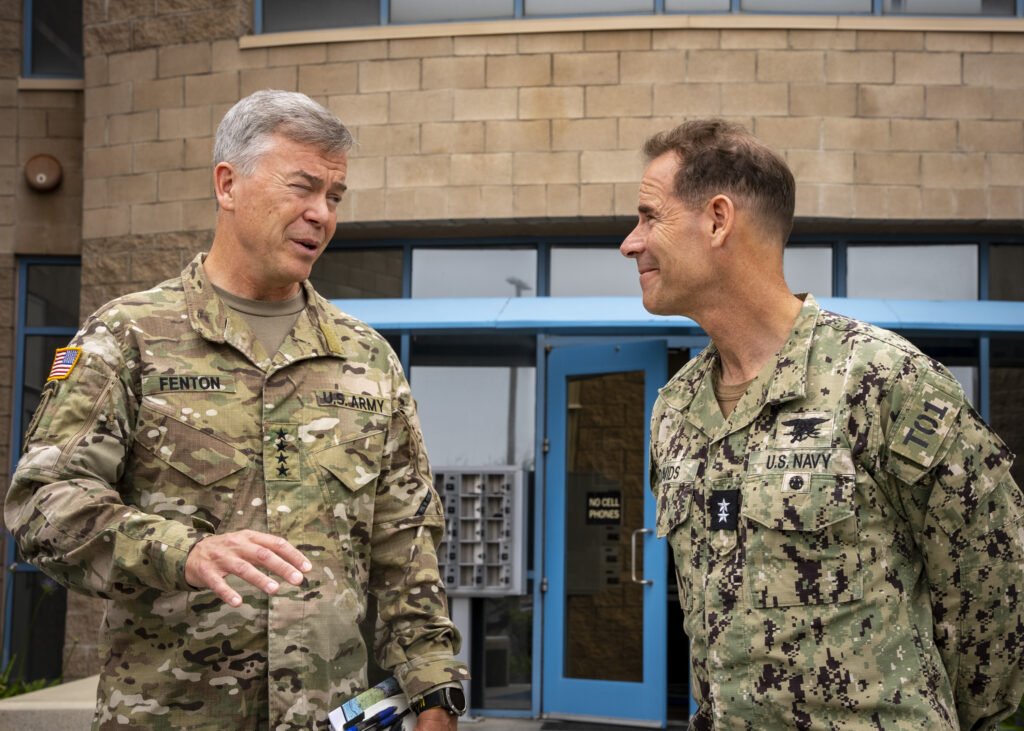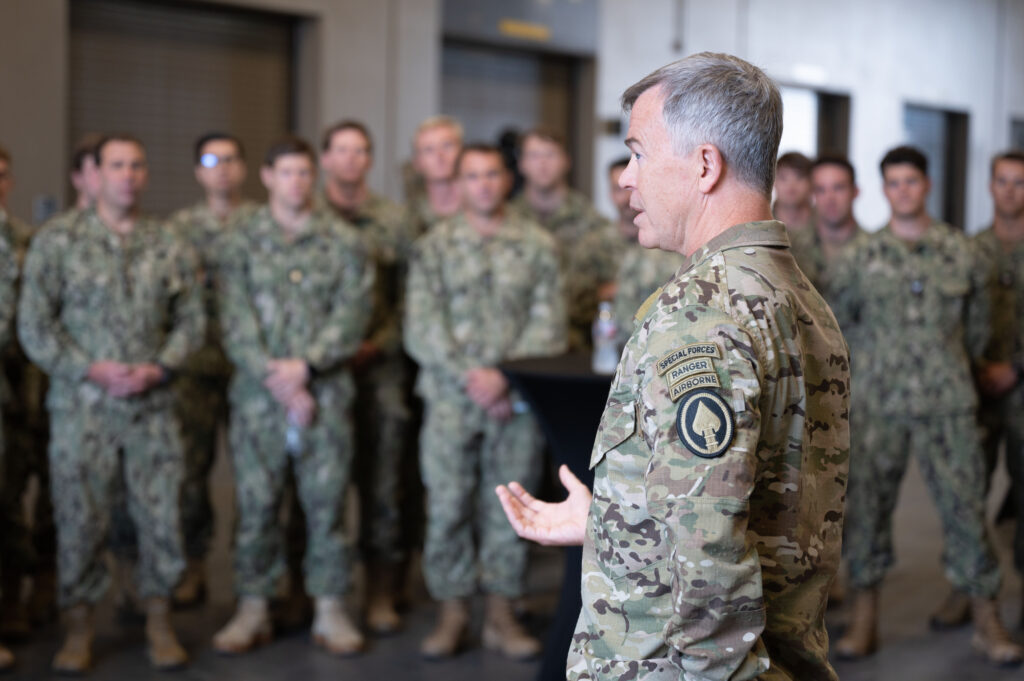
The U.S. Special Operations Command (USSOCOM) commander, Gen. Bryan Fenton, and senior enlisted leader, Command Sgt. Maj. Shane Shorter, visited Naval Special Warfare Command (NSWC) and Naval Special Warfare Center (NSWCEN) June 2, underscoring the crucial role of NSW in maritime special operations.
During their visit, Fenton, Shorter, Rear Adm. Keith Davids, commander, NSWC and Force Master Chief Walter Dittmar toured NSW Center and NSW Group One while interacting with NSW operators and instructors seeing firsthand the rigorous training, resilience, and resourcefulness that are hallmarks in the training of U.S. Navy SEALs.

“The men and women serving in our Naval Special Warfare units provide an unparalleled maritime special operations capability,” Fenton said. “Their unique skillset is vital to executing our national security strategy and maintaining a competitive edge in an increasingly complex global environment.”
Fenton’s visit served to validate the necessity of the challenging training that takes place at NSWCEN. He watched as SEAL and SWCC candidates pushed through grueling exercises, developing the physical stamina, mental resilience, and tactical acumen necessary for their demanding roles.
Davids echoed Fenton’s sentiments, emphasizing the crucial role that NSW units play in the broader special operations community.

“Our mission at NSWC is not only about developing and deploying naval commandos capable of operating in maritime environments,” said Davids. “It’s about cultivating leaders who can think creatively and build world-class teams that are ready and willing to solve our Nation’s toughest problems in high-stakes, high-pressure situations.”
Davids went on to underscore the importance of inter-service collaboration. He expressed gratitude for the continued support from USSOCOM and noted the relationship between NSW and USSOCOM as integral to the success of special operations across the globe.
Fenton’s visit highlighted the ongoing commitment of USSOCOM to understand, support, and invest in the unique capabilities of NSW and served as a reminder of the community’s critical role in protecting U.S. interests at home and abroad.




